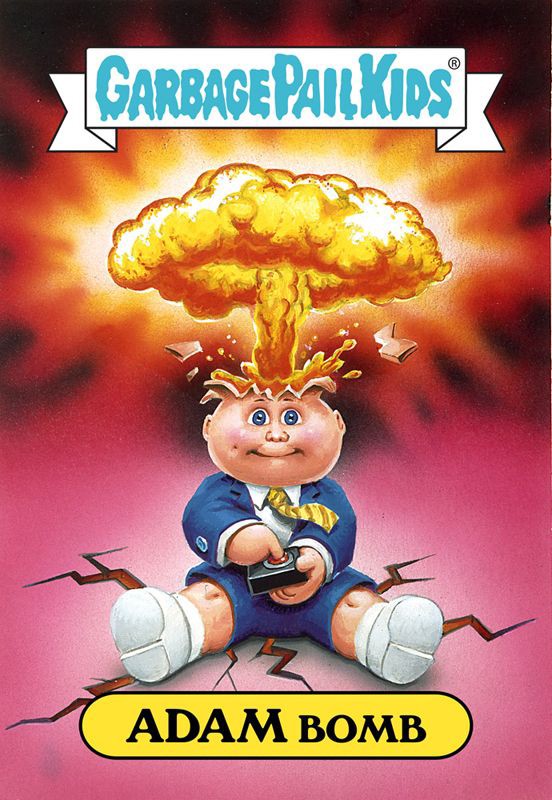Ross From Friends, "In An Emergency"
How young were you when this week started?
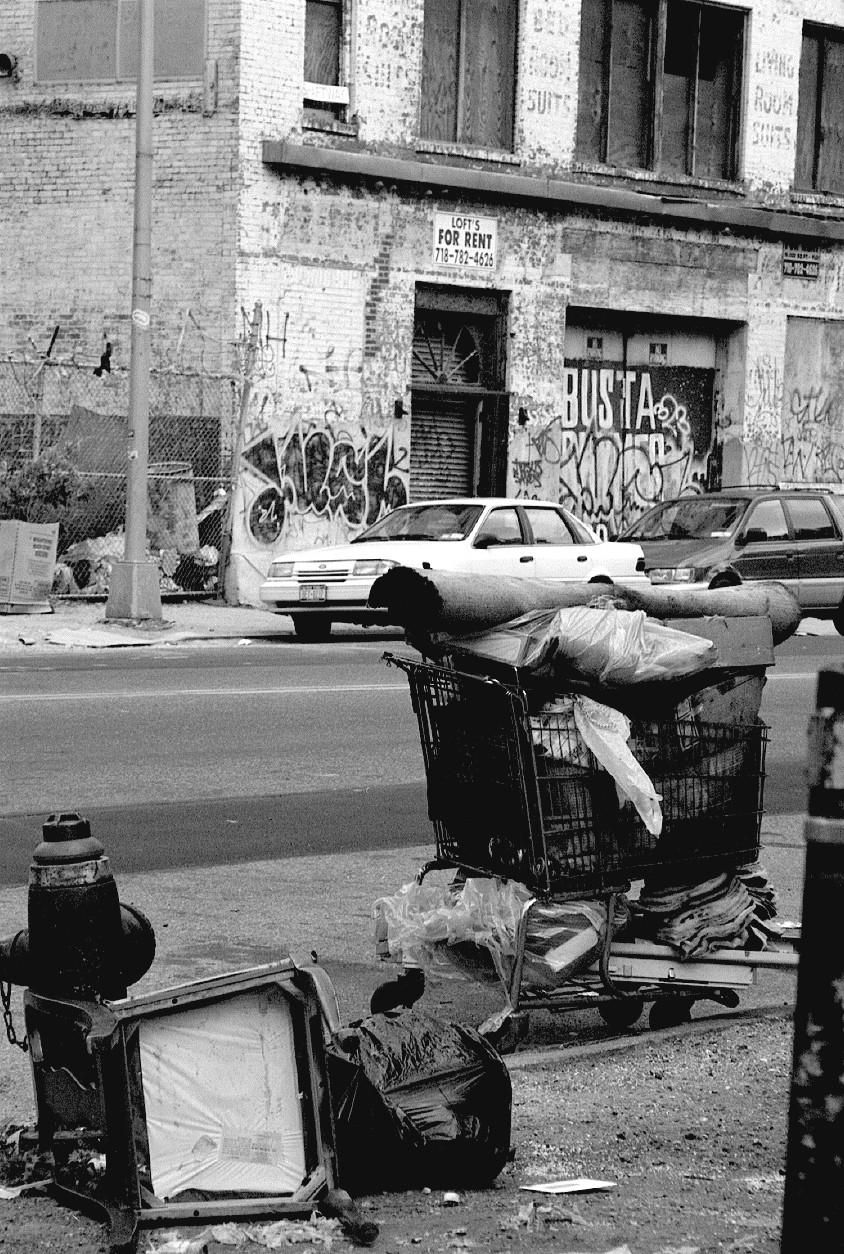
Remember Ross From Friends? The act, not the character. The last time we had something from them was back in April of 2016, which in the old time scheme was nearly a year ago but in the way time flows now was several lifetimes back. Sweet Christ, the way time flows now this Monday was nearly a year ago. I cannot believe how long this week has been, and I spend at least nine hours of every 82-hour day complaining about how long the weeks are these days. This week was long, is what I’m saying. But anyway, it’s Friday now, and here’s something new from Ross From Friends. Enjoy.
New York City, March 15, 2017

★★★ A crew of three was bashing at the ice encasing a parked car, using heavy snow-breaking tools. There jagged ice stuck to the vertical faces of the walls on the plaza and smooth sheet ice lay on the sidewalk outside. The younger boy complained that he didn’t look like himself, because static electricity was plastering his hair down. The whiteness on the sky became cloud cover, and a burst of tiny snowflakes blew around briefly. More bits of snow and bits of sun appeared tentatively and simultaneously in the deep cold of afternoon. The late-day wind whipped along the cross street, throwing down the hood as soon as it went up. Slush lagoons held the curb cuts, and for a moment, in the confusion of cleared and uncleared surfaces, the bike lane on Sixth Avenue looked like the sidewalk.
The Art of Listening: A Hagiography

Image: Troy Tolley via Flickr
In 1978, my dad, a soft-spoken medical intern, walked into one of the flimsily partitioned exam areas of the St. Vincent’s Hospital emergency room and saw John Cale in pain, his black leather pants and jacket covered on one side with the damp white paint he’d slipped and fallen in. He listened to Cale’s complaint and ordered an x-ray (“pretty much the only thing I knew how to do at the time”). After delivering the order, he returned to the exam room to tell the patient he knew and admired his music, and had seen him perform a week prior at CBGB. Cale, having listened politely to this green doctor, and still waiting in pain in his paint-covered clothing, looked at my dad and said, “You look like a respectable guy. What’s a respectable guy doing in that shithole?”
At this point in the story, my dad interrupted himself to make sure I knew who John Cale was; of course I did. “He was only with them on the first two records,” he explained. “He’s a very influential guy and had a rich career subsequent to the Velvet Underground. He played the viola, and he brought chaos, a very chaotic and discordant sound, and their later records, they don’t have it.”
My dad is a rock music fan, a fanatic, a pilgrim, a supplicant who has been taking in live music at shitholes, “civilized” venues (City Winery, The Bitter End), and everything in between, three or four times a week for the last fifty years. He slowed down his pace in after I was born in the eighties, and is making up for it now in his semi-retirement by adding a handful of multi-day festivals (Governor’s Ball, Primavera Sound, Panorama, Northside, Solid Sound, Way Out West) each year.
It is not uncommon, of course, to love music, and plenty of people are obsessive fans. Even so, my dad’s devotion is extreme, both in the vigor of his appetite and in the extent to which live music is the central enterprise around which the rest of his life is ordered. He has been to thousands, maybe tens of thousands of shows in New York City. He is an institution of music history with a crack memory; just as his mother could remember every meal she’d been served at every Italian wedding she’d been to in her life, my dad can remember every band, every show, every song. But he isn’t stuck in time. His feet are bad now and his hearing half-shot from the noise, and there are a million easier ways to listen to music that don’t require leaving the house, yet out he goes, night after night, maneuvering his way through the scrum, getting close enough to the stage to see the sweat drip down a performer’s hairline and feel the bass vibrate in his sternum.
What's Going On With This Girl Scout Cookie Art?
Deconstructing the “accent ingredient.”












It’s almost springtime, the drunk St. Patrick’s Day parades are still happening, and the weather is unseasonably cold. You know what that means: it’s Girl Scout Week!!!!!! It’s COOKIE TIME! Have you already ordered yours? I have not because I’m very busy blogging as you can see. But I spent some time perusing the options. If you navigate over to girlscouts.org and click here on “Meet the Cookies,” you too can learn that there are approximately twice as many types of cookies these days with names that sound like parodies of Girl Scout Cookies. If you put your zip code into the “Find Cookies!” nav bar you can find cookies near you.
But I’m not here to talk about names. Everyone knows that thing about how there are two names for the same cookie and it just depends on which bakery they’re made at. Everyone knows this. Look it up. Fine, here you go:
Why are there two bakers?
Girl Scout councils contract with one of two licensed bakers, whose recipes and ingredients may differ slightly. Contact your local Girl Scout council to find out which baker they partner with.
I’m here to talk about ART. Specifically the images of the cookies and their companion visual accents, the main or highlighted ingredients for each cookie. For the Peanut Butter Patties®/Tagalongs® and the Peanut Butter Sandwich/Do-si-dos®, the accent is obviously a shelled peanut, a perfect little light-brown legume, split down the middle with one of those seductive notches at the top. For the Lemonades™ and the Savannah Smiles® it’s two little eighth-triangles of lemon. For the Thin Mints® it’s a poorly photoshopped sprig of spearmint.
The Shortbread/Trefoils® one is very good and straightforward: a sugar cube.

The gluten-free (!!) Trios are business (oats) in the front, party (peanut and choco chips) in the back:

But what on earth is going on with the s’mores???? There are two types of s’mores. They are both called Girl Scout S’mores™, which is extremely confusing because they look quite different:


Chocolate and marshmallow: very simple. So what the fuck is going on in the right-hand picture? The accent ingredients have been melted into their liquid for and for some reason there is just…a few blobs of viscous, semi-opaque white goo on the naked graham cracker:
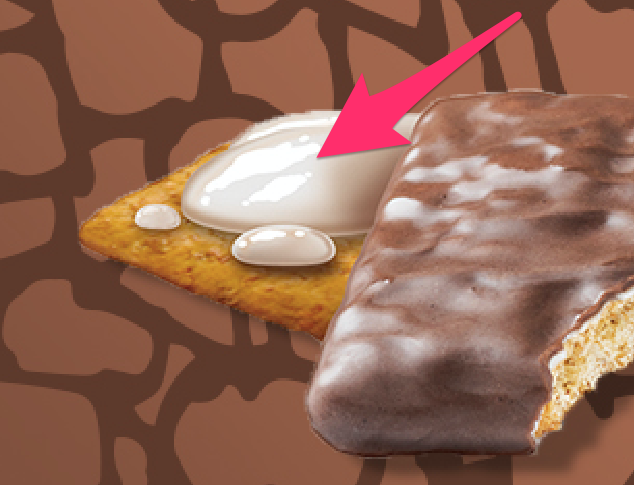
The GSA call this “yummy crème icing” but I call this “no.”
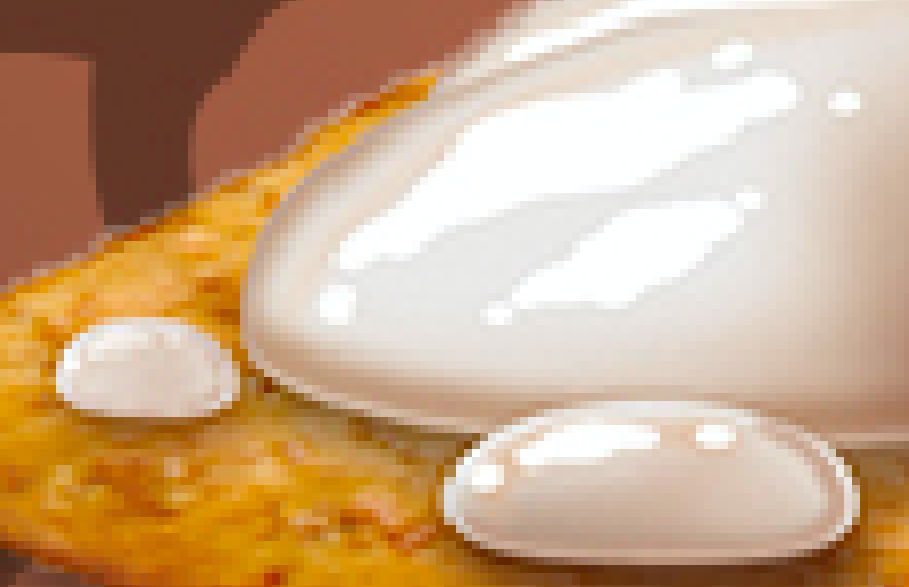
Do I have a suggestion for how they could have done this differently? Yes, just put the chunk of chocolate and mini marshmallow just like the normal one. What gives, Little Brownie Bakers? I mean thank goodness someone took the time to give the melted marshmallow jizz some nice angled lighting to give it that beautiful sheen. I bet it’s still warm.
Anyway, how many boxes have you ordered? Sound off in the comments.
And Her Little Dogs Too
What happens when the Queen dies?
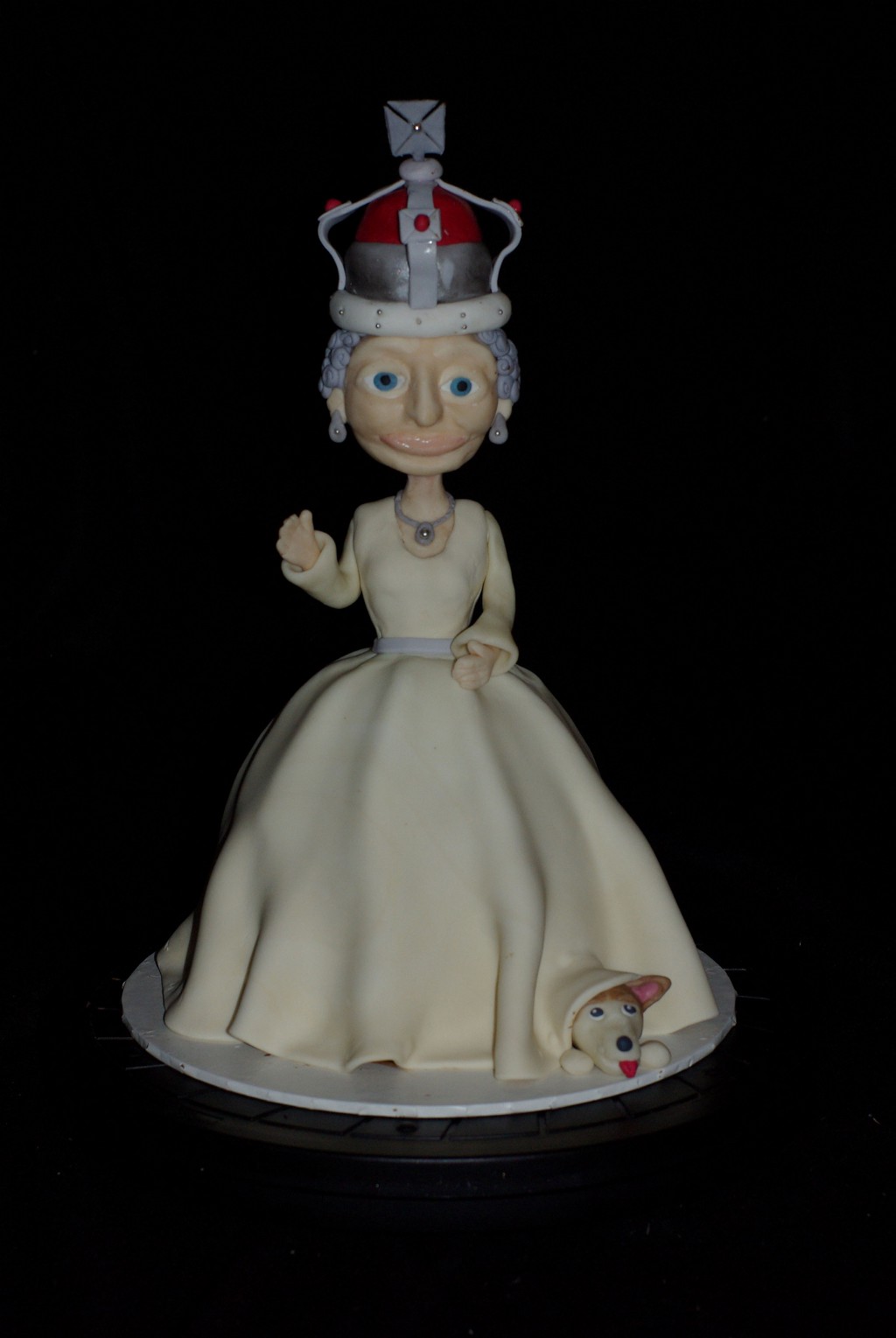
The newsreaders will wear black suits and black ties.… Listeners to Radio 4 and Radio 5 live will hear a specific formulation of words, “This is the BBC from London,” which, intentionally or not, will summon a spirit of national emergency. The main reason for rehearsals is to have words that are roughly approximate to the moment. “It is with the greatest sorrow that we make the following announcement,” said John Snagge, the BBC presenter who informed the world of the death of George VI. (The news was repeated seven times, every 15 minutes, and then the BBC went silent for five hours). According to one former head of BBC news, a very similar set of words will be used for the Queen. The rehearsals for her are different to the other members of the family, he explained. People become upset, and contemplate the unthinkable oddness of her absence. “She is the only monarch that most of us have ever known,” he said. The royal standard will appear on the screen. The national anthem will play. You will remember where you were.
Depending on how fascinated you are with the quaint, antiquated monarchical traditions of a quaint, antiquated monarchy you will have an idea of how interested you might be in an article about what happens when Britain’s monarch dies. But everything about this article — the reporting of which “involved dozens of interviews with broadcasters, government officials, and departed palace staff, several of whom have worked on London Bridge directly. Almost all insisted on complete secrecy” — is fascinating, even if you don’t care a whit about how they do things on Knifecrime Island. Has the world changed or have you changed? Save it for when you’ve got some time.
Operation London Bridge: the secret plan for the days after the Queen’s death
Feud Season 3: Brahms vs. Wagner????
Classical Music Hour with Fran


A huge part of my 600-page Brahms book is the various feuds Brahms had with other composers at the time. Feuds are very en vogue right now, and why wouldn’t they be? Our whole country is in a feud. (This is a timely joke.) The deal with Brahms is that I think he was honestly for a time a normal artist type. That’s not to say he was a normal person — artists are not normal people — but he was a Textbook Creative Type, if you will. Sometimes upbeat and charming, other times moody and sarcastic. He was horny all the time, constantly crushing on his female co-workers (uh, choir students), but never seeing anything through. He was also constantly dragging other composers, either in magazine articles or via letters to peers, as this debate in the New German School took hold on central Europe.
The big fight amidst this argument about the New German School (which was not necessarily all new, nor all German, nor was it a school) started with Richard Wagner in an article he published in which he made the case that the truest meaning of music would be to combine it with poetry or the written word. I’m paraphrasing, but basically he said opera is king. This went against those like Franz Liszt who essentially believed programmatic music — music that told a story — was the gateway forward. And then you had conservative folks like Brahms who were like, “Okay… well… I’m just gonna keep composing normal symphonies not necessarily based on anything but melodies I’m interested in right now.”
But not unlike most feuds, the deal with Brahms and Wagner was that they also did kind of like each other. The two met only once in January of 1863, mostly just to play and chat — Brahms was nearly 30 and Wagner nearly 50. They were ultimately respectful of each other, though Wagner got in a few barbs, namely around the fact that Brahms would be nothing without Wagner paving the way. Which, sure! A very natural old-person opinion to have. Like when your parents maintain they’d have been better at school if they had the internet. The two shook hands and departed on pleasant terms, also known as, “Wagner talked shit about Brahms for the rest of his life.”
Wagner has been tricky to write about for this column. His complicated history — the arrogance, the malevolence, the anti-Semitism, not to mention his relatively dark and nationalistic music is often hard to parse through. I, myself, am also not an expert per se on operas, which makes a lot of his work more unapproachable to me. I often conflate him with Mahler, another German composer, whose work I also have a tough time puzzling through.
Regardless, in the early days of writing this column, a dear friend passed along the overture to Tannhäuser (Berliner Philharmoniker, 2003) and I instantly loved it. Because I organize my classical library alphabetically by composer, poor Wagner was often down at the very bottom and the Tannhäuser Overture just sat down there which it really ought not to have.
Tannhaüser is an opera that was written almost 20 years before Brahms and Wagner met. It’s got a pretty classic opera plot: medieval setting, dashing minstrel-knight, goddess of love, all of that jazz. It centers itself in part around a theme of “spring,” but even that’s pretty loose. I think one of the reasons I found myself instantly drawn to Tannhäuser is that it reminds me of a handful of pieces I’ve written about here before. It’s got this pastoral, natural tone not unlike Smetana’s Moldau. A bit of Dvořák’s Slavonic Dances. Because it’s German, we can’t, of course, discount the influence of Beethoven.
The Overture begins with the woodwinds and brass in an optimistic but relatively dense melody. It builds, adding strings, and at its first big crescendo around the 2:11 mark, you can really feel the depth and scope of the Tannhäuser. There’s some immense power behind this crescendo. The horns blaring over the strings descending down their scales. When the strings overtake the horns at the 3:07, their melody is intensely wistful, almost in mourning.
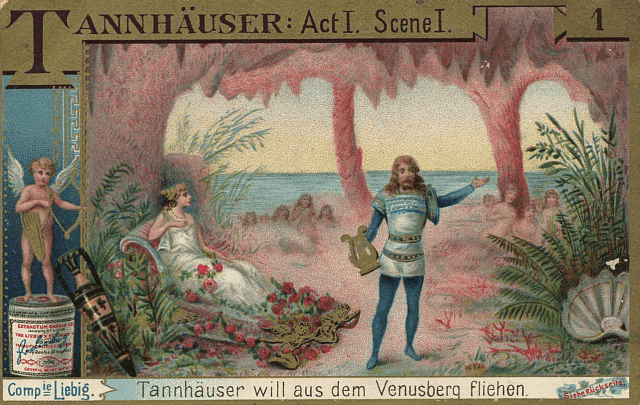
Because it’s an overture, it touches on quite a few different themes. It’s a little jarring sometimes — in the way that a normal Broadway overture would have some tonal whiplash from time to time. Around the 8:40 mark, it slides into what sounds like a dance. It’s simultaneously upbeat and worrying, as if Wagner is building to something you can’t predict. With a big roll of the timpani, he ushers in a jovial climax that you can almost bop your head along to.
That’s the thing about Wagner for me. Even without knowing Tannhäuser, it immediately seemed to familiar to me. Wagner is so ingrained into our classical musical landscape — I mean, we all know this guy, but come on — that it’s impossible to listen to him and not feel a deep sense of familiarity. For all of his snark towards Brahms for “making him what he was,” be it direct or indirect, Wagner did kind of shape classical music in a world beyond Beethoven. He also didn’t like Jews! The world is rich and complicated and stupid.
A year after they met, Wagner was preparing to do Tannhäuser in Munich and learned that Brahms, in fact, was the person with the deluxe manuscript of the opera, given to him by a mutual friend. Wagner and his associates were furious that the score had ended up in Brahms’ hands and demanded it back for the performance. Brahms refused.
Fran Hoepfner is a writer from Chicago. You can find a corresponding playlist for all of the pieces discussed in this column here.
A Poem by Patricia Lockwood
The Pinch
I said out loud for the first time ever, I want to deface a car. I wanted other things too, as it happened — the things I wanted were so specific.
You see I was looking at the bodies all day. The unrolling skins of the politicians. Due to recent developments I could see every pore, and a moistness at the corner of the eyes.
I thought I would like to make that moistness.
The speaker of the house came on, I thought I want to forcibly remove every piece of beard from your body.
The counselor to the president came on, I thought I am going to unbend you like a Barbie knee, until you make that creak.
These were new thoughts. Before, it had always been myself that I imagined: slashed to ribbons, pressed to the griddle, spinning on the tip of a sword. Peeled like a grape for a haunted house.
But now the feeling had been let out. A pure pinch between two fingers, and shocking how soft it was.
A brazen desire to deflate the turtle, to surprise him to the point of squealing, to pop the lenses out so he couldn’t find his way to school.
To rip the suit off stitch by stitch and burn it in one of those cans that homeless people and gang members are always warming their hands over. In the movies.
Where do you buy baseball bats, I asked.
Is there a store that sells only the red spray paint.
The secretary of education came on, I saw her clinging to an oversized novelty pencil as she went over Niagara Falls. I had somehow engineered this, through my cleverness.
The attorney general came on and I thought I will aim the ray and shrink you down and put you in a model train scenario. In a hat with blue stripes, which will be your hell.
The former governor of Arkansas came on, I thought I will sit on you like a fart cushion until you have bllbbted your last bbblpptdt.
The White House chief strategist came on the screen, I said I will feed you pieces of nazi memorabilia one by one until you start to gurgle. I want them to find you wearing Eva Braun’s bra.
The second in command appeared, and I thought, what I do to you, they will name it the Indiana.
My hand was shaking, it was a fist, inside it was the shape of a human being I had squeezed into a chess piece until it could not move, it could not move against us.
What us, my parents voted for him.
When I was very young, in the house with the swing set, my mother put me in charge of one of the sweet shampooed Lauras that she babysat, whose ponytail slid like fresh runoff down one shoulder. I thought hazily, she must know that I mean business, then swung a diaper bag square at her trusting rump, whomp, and raised my voice and said you go sit in time out!
Until I say!
This means I have the seed in me, or something.
You need to learn to defend yourself, my mother told me, and so the next time my brother snuck up to torment me I dug my nails into his forearm until I almost broke the skin, and my father said, I always knew you were nasty.
The first lady stood at the podium and I thought, I will plant you very very deep, until your head is a sunflower even Kansas doesn’t like.
The wife I didn’t picture doing anything to, it had all been done already. Her teeth were broken from eating jewelry.
The son I actually wept to see — the unscripted movements of his hands were so familiar. Due to recent developments, my tears were brighter than usual.
Still the bodies continued. It was no longer enough to think they had once been babies, that seeing them I would have become a thousand tickling fingertips and not this flashing kit of sharp things.
I felt myself a sack of what could happen, while all around me flew soon-to-be-history.
Then the husband himself marched onscreen, and a great sound opened in my mind like a pair of scissors and I said I am going to do it, I am going to cut your hair. I will lift up the longest strand and snip, will chase you to the roof of your own self and slice like the wind through your last hiding place. In America you can be anything, suddenly I was anything, my nails broke the skin of his arm. He opened his mouth and I said, I’m condemning your building for rats. I’m going to put you in a bed at the border, I am going to brutally cut your lunch, I am going to remove the word big from you, surgically, I am going to tighten your silk, past pink and blue to purple, I am going to make you young again, at the moment when you said she must know I mean business, I am going to take a lighter to the money, I am going to snap the golf club on my knee, I am going to lift the daughters off your lap, every one, I am going to leave a thumbprint in all that gold
Which is so soft, remember
Patricia Lockwood’s memoir Priestdaddy (Riverhead Books) comes out in May. She is the author of two poetry collections, Balloon Pop Outlaw Black and Motherland Fatherland Homelandsexuals, a New York Times Notable Book.
The Poetry Section is edited by Mark Bibbins.
Gas, "Narkopop 8"
We needed this.
Everything is terrible but sometimes there are surprises:
In the body of work of Cologne artist Wolfgang Voigt — who, like few others, has informed, shaped and influenced the world of electronic music with countless different projects since the early 1990s -, GAS stands out in particular as a saturnine sound cosmos based on heavily condensed classic sequences. Even after nearly 20 years, the sound of GAS doesn’t seem to have lost any of its luster…. Nearly two decades after the last official GAS album release, Wolfgang Voigt returns to his iconic Ambient project with a brandnew full-length.
– NARKOPOP continues the classic GAS aesthetic of symphonic scope and subtle variation, taking the listener on an otherworldly journey to the depths of rapture and reverie.
I know “rapture and reverie” can make you feel a little eye-rolly, but they are in this case correct, Gas was one of the great projects of the last 25 years. I am not someone who gets excited about… anything, but the fact that there is a new Gas album coming out in late April means it is worth sticking around until at least late April to hear how it turns out. Here’s another sample.
Enjoy, there’s so little else out there to be glad about.
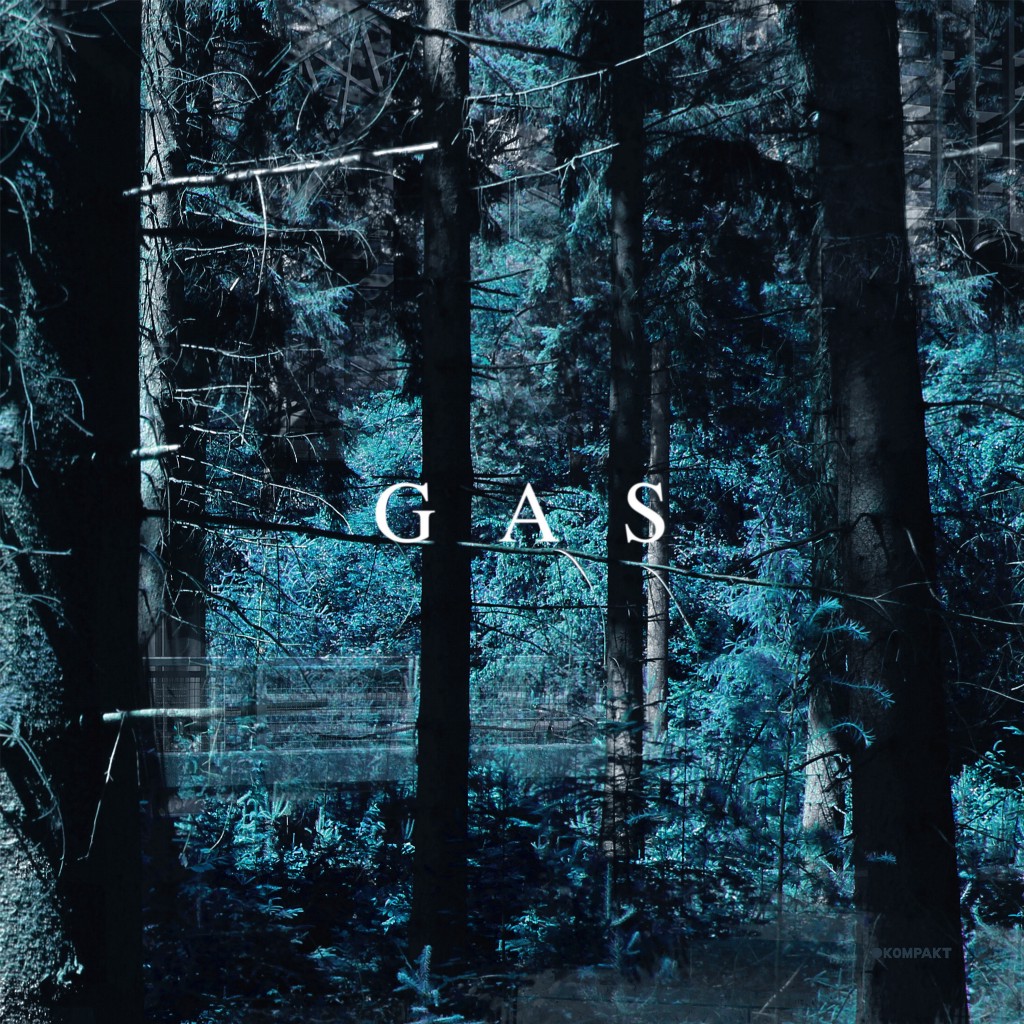
New York City, March 14, 2017

★★★★ Wind groaned at the door and the five-year-old yelled at the window: “It’s icy on our window! Get off, ice!” The ice, which was not snow even if it once had been, clung in thin sloppy streaks. The clicking noises that had announced the failure of the blizzard to become a blizzard faded. A hand stuck out the window found that what was whiting out the midday view was mostly blowing rain. A heavy chunk of slush fell from somewhere above and banged into the window frame. The decision not to try buying saucer sleds the night before, at the first sign of faltering in the forecast, had been the right one. Daylight brightened and dimmed again. Thunder cracked. By late afternoon, in time for the rescheduled and relocated viola lesson, what was falling had turned back into snow. Slush banks and ice dams barred the way. The five-year-old roared defiance as he scrambled over an impediment. This was the fun part of winter, he said. There was no need for snow pants, he added. The older boy, luckily, was able to get by in low waterproof shoes. Someone was carrying a large and long-leafed potted plant along the sidewalk. The thick layer of slush on the crosswalk had been trampled so dense and clear that the pavement markings were legible through it. The trains were all running local, with rides at ease among peaceful expanses of open seats. Stray tiny drops of melted snowflakes shone in the younger boy’s hair under the train lights. Outside the cozy apartment, with its sound of viola and smell of soup, the snow had become picturesque in its swirling. It traced the tops of the gray stone lintels and quoins on an otherwise unnoticeable dark red brick building. Heading home, the five-year-old stomped across the street with enough force to send globs of dirty slush flying. The snow tapered and stopped. A chunk of ice plunged from a building face and shattered on top of the remains of prior ice chunks. More ice was beginning to slide over the edge of the curving roof of the Apple store, a huge sheet of it, trickling water. The five-year-old said he was going to make a snowball and reached for a snowbank. The surface was impenetrable.
The Garbage Pail Kids Guy Is Dead And I Don't Feel So Good Myself
Some thoughts inspired by a tweeted reminder of man’s impermanence on this earth
Hey, children of the ’80s. Remember Garbage Pail Kids? Jay Lynch, who designed the comic, has died at 72. https://t.co/1Zdf3cnFQt
Garbage In, Garbage Out
The things you loved in childhood end
Their makers pass as well
Your memories are fading fast
There’s less and less to tell
The ones who knew and loved you best
Are gone or on their way
The places where you once found joy
Are empty shells today
And you are not that young yourself
So know this in your grief
The grave looms ever closer now
I hope that’s a relief
